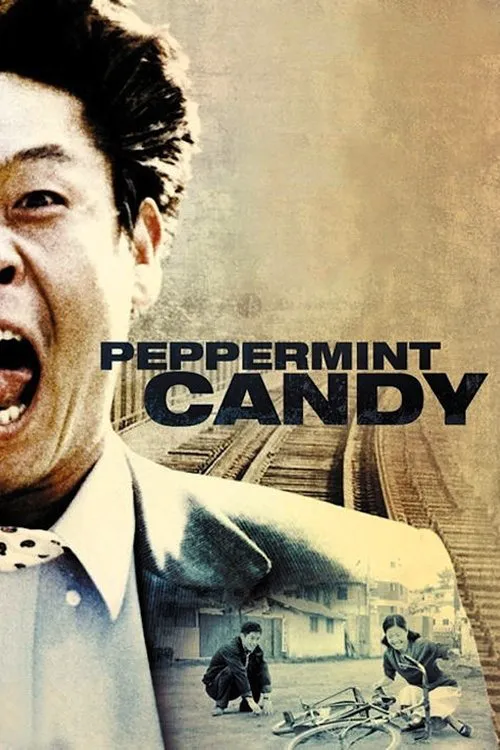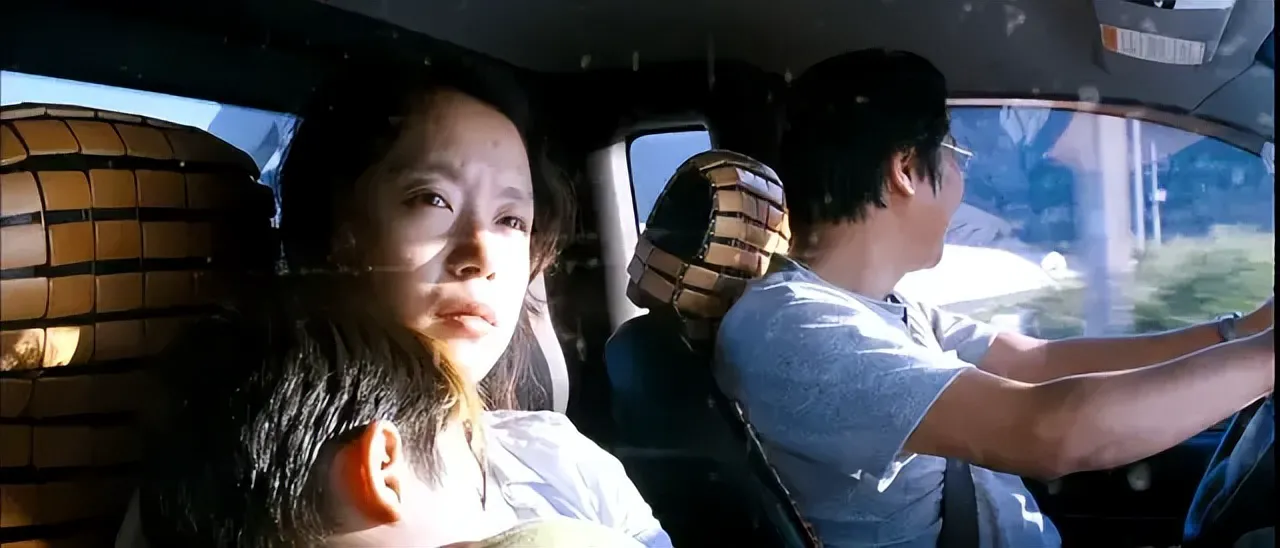Peppermint Candy

Plot
In the heart-wrenching drama "Peppermint Candy," director Lee Chang-dong masterfully weaves a narrative that spans two decades, navigating the complexities of a life lived. At its core, the film is a poignant exploration of the human experience, delving into the realms of loss, regret, and the elusive nature of happiness. The film's narrative unfolds with a sense of foreboding, as a group of old friends gather in the spring of 1999 to celebrate their 20-year reunion. Amidst the festivities, one person stands out for all the wrong reasons: Yeong-ho. His demeanor is as cold as the stone walls that surround them, and his absence of joy is palpable. As the evening wears on, it becomes apparent that Yeong-ho's darkness is not merely a facade, but a reflection of the turmoil that has been brewing within him. As the events of that fateful night unfold, Yeong-ho becomes increasingly distant, his eyes fixed on the horizon as if lost in thought. It is then that the memories of his past begin to surface, flooding his mind like a tidal wave. These memories, seven pivotal episodes that have shaped his life, are the threads that weave together the tapestry of "Peppermint Candy." The first of these memories takes us back to 1979, a time of innocence and naivety. In this scene, we meet a carefree Yeong-ho, a young man with a bright future ahead of him. His relationships with his peers are genuine, and his laughter is contagious. This idyllic portrait is, however, short-lived, as we soon find ourselves in 1986, a time of great turmoil. It is in this year that Yeong-ho becomes embroiled in a tragic event that will forever change the course of his life. His actions, though well-intentioned, ultimately lead to the death of a young man, a friend since childhood. The consequences of his actions weigh heavily on his conscience, casting a shadow that will continue to haunt him for years to come. As the memories continue to unfold, we are taken on a journey that spans the 1980s, each decade painting a picture of a life slowly unraveling. We witness Yeong-ho's relationships crumble, his family's struggles, and the loss of loved ones. In each of these moments, we see the glimmer of a life torn apart by the relentless march of time, a reminder that even the smallest actions can have profound consequences. Yet, "Peppermint Candy" is not merely a film about regret and loss. It is also a poignant exploration of the human spirit, a testament to the enduring power of love and connection. In the midst of Yeong-ho's darkness, we find moments of beauty, reminders that even in the darkest of times, there is always hope. These moments are often fleeting, but they offer a glimmer of light in the void. In 1988, we find Yeong-ho in a moment of tenderness, his love for a woman who will soon leave him palpable. In 1990, we see him at his family's side, struggling to cope with the loss of a loved one. In each of these moments, we are reminded that even in the midst of pain, there is always a chance for redemption, for healing, and for growth. As the memories of Yeong-ho's past continue to surface, we are left with a profound sense of sadness, a recognition that the choices we make in life are forever connected to the consequences that follow. And yet, even in the face of this sorrow, "Peppermint Candy" offers a message of hope, a reminder that it is never too late to change, to learn from the past, and to forge a new path, one that is shaped by the experiences we have shared. The film ends on a poignant note, a reflection of the fragility of life and the transience of human connection. As Yeong-ho stands on the railroad bridge, his eyes fixed on the horizon, we are left with a sense of uncertainty, a knowledge that the path ahead is unclear. It is in this moment that we are reminded of the power of memories, of the impact they have on our lives, and the choices we make with them. In "Peppermint Candy," Lee Chang-dong has given us a masterpiece, a film that will haunt us long after the credits roll. It is a testament to the human condition, a reminder that we are all struggling to make sense of a world that often seems too complicated, too confusing. Yet, despite this complexity, the film offers a message of hope, a reminder that even in the darkest of times, there is always a chance for redemption, for healing, and for growth.
Reviews
Recommendations





